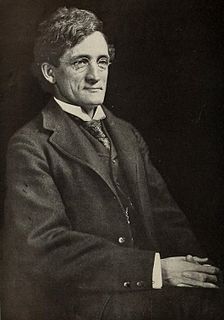A Quote by John Updike
It is not enough for a story to flow. It has to kind of trickle and glint as it crosses over the stones of the bare facts.
Related Quotes
Facts are neutral until human beings add their own meaning to those facts. People make their decisions based on what the facts mean to them, not on the facts themselves. The meaning they add to facts depends on their current story … facts are not terribly useful to influencing others. People don’t need new facts—they need a new story.
The trickle-down theory of economics has it that it's good for rich people to get even richer because some of their wealth will trickle own, through their no doubt lavish spending, upon those who stand below them on the economic ladder. Notice that the metaphor is not that of a gushing waterfall but of a leaking tap: even the most optimistic endorsers of this concept do not picture very much real flow, as their language reveals" pg. 102.
I don't want to see trickle down racism. I don't want to see a president of the United States saying things which change the character of the generations of Americans that are following. Presidents have an impact on the nature of our nature. And trickle down racism, trickle down bigotry, and trickle down misogyny, all these extraordinarily dangerous to the heart and character of America.
The best time to tell your story is when you have to tell your story. When it's not really a choice. But then, when you get that first, messy, complicated version down, you have to read it over and be very tough on yourself and ask, 'Well what's the story here?' If you're lucky enough to have someone you trust looking over your shoulder, he or she can help you if [you] lack perspective on your own story.




































